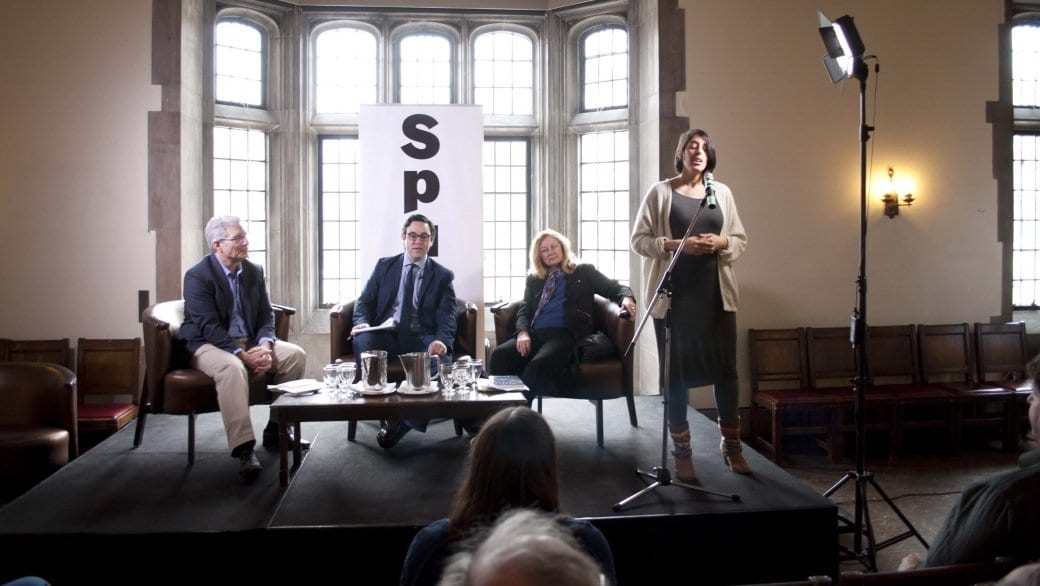Since its inception in 2013, the Spur festival has sparked progressive dialogues among creative communities with an aim at fostering diversity and accessibility across Canada. Artists, scholars, filmmakers and politicians from across the globe have engaged audiences in six cities nationally through panel discussions, performances and presentations.
The Spur festival, which is produced by the Literary Review of Canada and Diaspora Dialogues, prides itself on the inclusivity of queer voices in its programming. This year’s theme, Our New Tribalism, focuses on fluidity in identity with the intention of initiating a meaningful conversation about diversity.
Helen Walsh, festival director and publisher of the Literary Review of Canada, says the involvement of LGBT communities is reflective of Spur’s vision and mandate.
“Spur has always seen including LGBT speakers in our programming as a priority. Last year, Spur launched a new program called Spoken Word Poets in Residence, which brings spoken word artists into the festival. They perform five to seven-minute sets before every event, bringing an artistic insight into the range of topics under discussion, whether it be murdered and missing indigenous women, food, security, the environment, or others. Many of the poets last year were LGBT.
“This year’s theme, Our New Tribalism, explores fluidity in identity and being. Spur learns from Toronto’s transgender community and supporters in an event titled Trans-Canada. We are also hosting a discussion with Vincent Doyle about his new book Making out in the Mainstream, the first full-length study of LGBT media activism,” Walsh says.
The inclusion of diverse communities across a multitude of disciplines and practices has always been central to Spur’s vision. The involvement of academic institutions, community organizations and media outlets has allowed the festival to thrive and expand its reach from three Canadian cities to five for its third annual festival in 2016, including Toronto and Winnipeg.
“We launched Spur to bring people together across backgrounds and communities to reimagine the kind of society in which we want to live. By definition, that means ensuring diverse voices in the room, in age, race, gender, ability, professional background and interests. We feel that a successful society needs to be fully inclusive and leverage people’s individual strengths.”
“We also have a core interest in exploring issues and solutions through the prism of different sectors, again, because we believe experience counts, and diverse experience brings a stronger set of ideas to the table. We launched Spur on a partnership model, and focused on building relationships with academic institutions and student groups, with artists and arts organizations, with libraries and community based organizations, with media and publishing outlets,” Walsh says.
Cultivating relationships from a vast cross-section of communities has been instrumental to Spur’s success. The key to substantial change, according to Walsh, lies in engaging one another on a grassroots level.
“We think big and have a really good time. It’s only by encountering our fellow citizens, and listening to what they believe and why, do we truly understand each other in a way that allows us to move forward positively,” Walsh says. “If that’s not worth investing a few hours in, we don’t know what is.”
Spur festival Toronto
Thursday, April 7–Sunday, April 10, 2016
spurfestival.ca

 Why you can trust Xtra
Why you can trust Xtra